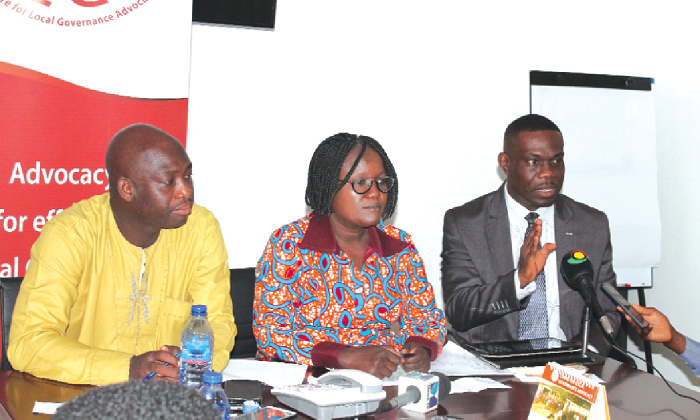
Govt urged to amend Local Governance Act
The Centre for Local Government and Advocacy, a local think tank on governance, has called on the government to amend the Local Governance Act, Act 2016 (Act 936) to avoid recentralising of the governance system in Ghana.
Sections of the Act, according to the think tank, are inconsistent and in variance with the local governance system.
The call was made after the centre realised that some aspects of the Act would duplicate efforts and services of the local government.
Zonal councils
Addressing the media in Accra on Wednesday, the Deputy Executive Director of the centre, Ms Gladys Gillian N. Tetteh, said the provision of Section 2.2 of the Act scrapped the zonal councils as part of the sub-district structures within the local government system.
According to her, it would be meaningless if the local government system operated without zonal councils, in particular, when the unit committees had not been properly resourced to perform their functions.
“Currently, the new law has scrapped the zonal council without indicating how the assemblies are going to function without the zonal council,” she said.
Government appointees
Concerning the appointment of members of district assemblies by the President as provided under section 10 (9) of the act, the centre explained that the position would lead to familiarity and introduce inconsistencies in the system.
Ms Tetteh contended that it would make it difficult for the assemblies to attract the required expertise to support their work and would tie the hands of successive governments that would need to replace non-performing and inexperienced members.
Revoking standard
The centre said it was also not happy with the differential standards between a vote of no confidence in the District Chief Executive (DCE) under Section 20 (a) of the Act and revocation of government appointees by the government.
Ms Tetteh explained that under the section, “a DCE can be voted out with a vote of no confidence, when the vote of not less than two-thirds of all the members of the District Assembly is passed against the DCE,” but according to Section 10 (9), “The appointment of an appointed member of a District Assembly may be revoked by the President upon the recommendation of three-fourth of the members of the District Assembly.”
She noted that there were differential revoking standards between two-thirds for MMDCEs and three-fourth for government appointees as provided by the law.
Ms Tetteh further noted that the creation of some ministries by the current government had the potential of recentralising rather than decentralising development initiatives.
She said the approval of the act under section 37, which required the President to enforce functions of the assemblies, could amount to recentralisation and the violation of the letter and spirit of Chapter 20, Article 254 of the 1992 Constitution.
“The President may declare a district assembly to be in default of its functions by Executive Instrument if it is in the public interest to do so,” she said.
Ms Tetteh said the CLGA was not too clear on the import of section 142, which in one breath decentralised the collection of taxes chargeable on incomes of identified income earners while in another breath under Section 2 allowed other public bodies to collect taxes imposed on those same categories of income earners on behalf of the assembly.
“In this light, the centre is of the view that there is a recentralisation of the tax mobilisation in disguise,” she said.
While congratulating the Sixth Parliament for the passage of the Act, the CLGA urged the President Nana Addo Dankwa Akufo-Addo-led government to deliver its manifesto promises on local governance and decentralisation.
